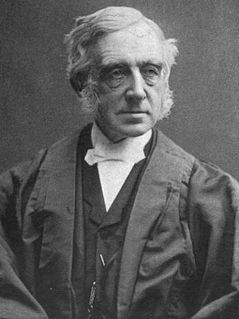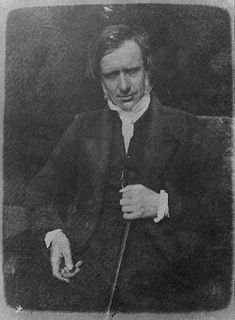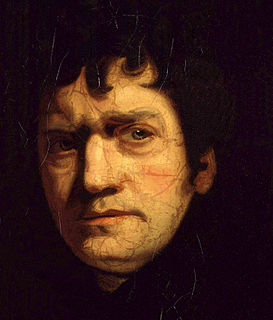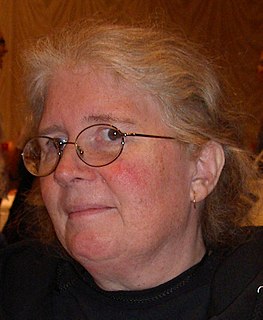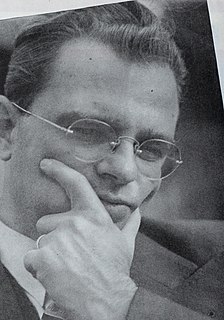A Quote by Robert Kennedy
Goethe tells us in his greatest poem that Faust lost the liberty of his soul when he said to the passing moment, 'Stay, thou art so fair.
Related Quotes
But Goethe tells us in his greatest poem that Faust lost the liberty of his soul when he said to the passing moment: "Stay, thou art so fair." And our liberty, too, is endangered if we pause for the passing moment, if we rest on our achievements, if we resist the pace of progress. Change is the law of life. And those who look only to the past are certain to miss the future.
Upon the publication of Goethe's epic drama, the Faustian legend had reached an almost unapproachable zenith. Although many failed to appreciate, or indeed, to understand this magnum opus in its entirety, from this point onward his drama was the rule by which all other Faust adaptations were measured. Goethe had eclipsed the earlier legends and became the undisputed authority on the subject of Faust in the eyes of the new Romantic generation. To deviate from his path would be nothing short of blasphemy.
Goethe said that the worst thing in art is technical facility accompanied by triteness. Many an artist, like God, has never needed to think twice about anything. His works are the mad scene from Giselle , on ice skates: he weeps, pulls out his hair holding his wrists like Lifar and tells you what Life is, all at a gliding forty miles an hour.
Dost thou understand me, sinful soul? He wrestled with justice, that thou mightest have rest; He wept and mourned, that thou mightest laugh and rejoice; He was betrayed, that thou mightest go free; was apprehended, that thou mightest escape; He was condemned, that thou mightest be justified; and was killed, that thou mightest live; He wore a crown of thorns, that thou mightest wear a crown of glory; and was nailed to the cross, with His arms wide open, to show with what freeness all His merits shall be bestowed on the coming soul; and how heartily He will receive it into His bosom?
The perfection of His relation to us swallows up all our imperfections, all our defeats, all our evils; for our childhood is born of His fatherhood. That man is perfect in faith who can come to God in the utter dearth of his feelings and his desires, without a glow or an aspiration, with the weight of low thoughts, failures, neglects, and wandering forgetfulness, and say to Him, “Thou art my refuge, because Thou art my home”.
Sin! Sin! Thou art a hateful and horrible thing, that abominable thing which God hates. And what wonder? Thou hast insulted His holy majesty; thou hast bereaved Him of beloved children; thou hast crucified the Son of His infinite love; thou hast vexed His gracious Spirit; thou hast defied His power; thou hast despised His grace; and in the body and blood of Jesus, as if that were a common thing, thou hast trodden under foot His matchless mercy. Surely, brethren, the wonder of wonders is, that sin is not that abominable thing which we also hate.
A man asked Muhammad what was the mark whereby he might know the reality of his faith. Muhammad said, 'If thou derive pleasure from the good which thou hast performed and thou be grieved for the evil which thou hast committed, thou art a true believer.' The man said. 'In what doth a fault really consist' Muhammad said, 'when action pricketh thy conscience, forsake it.'
Life is more than thought: what a man feels, and what his senses awaken in him, are more indispensable to his life's fullness than subsequent reflection on their significance. Both Stirner and Nietzsche have elaborated Faust's opening speech in which he bemoans his wasted years in academia: this speech is Goethe's own impeachment of Kant and Hegel . Philosophy proceeds always under the risk of making a fetish of thinking.
In this vast universe There is but one supreme truth- That God is our friend! By that truth meaning is given To the remote stars, the numberless centuries, The long and heroic struggle of mankind . . . O my Soul, dare to trust this truth! Dare to rest in God's kindly arms, Dare to look confidently into His face, Then launch thyself into life unafraid! Knowing thou art within my Father's house, That thou art surrounded by His love, Thou wilt become master of fear, Lord of Life, conqueror even of death!







